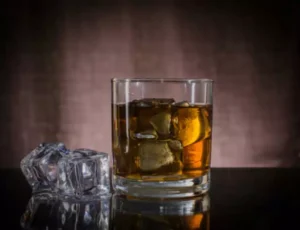
Drug abuse in athletes often has a significant mental health component. Student-athletes who must balance strenuous practices and competitions with academics are particularly vulnerable to mental health issues https://ecosoberhouse.com/article/alcohol-and-anxiety-can-drinking-cause-panic-attacks/ that can lead to or worsen addiction. If they are addicted to another substance like alcohol, athletes may make bad decisions like drinking before a competition to stave off the symptoms of withdrawal.
- In the only study to look at theta burst in nicotine users, abstinence rates were increased three months post treatment but cravings were unchanged [45,75].
- We may be paid a fee for marketing or advertising by organizations that can assist with treating people with substance use disorders.
- Len Bias was a star basketball player at the University of Maryland, earning the ACC Athlete of the Year and ACC Player of the Year awards in 1986.
- The consequences of use—both physically and within the sports world—vary depending on the drug used.
Professional Sports, Brain Injuries and Drug Use
Kids bond with a more diverse groups of peers, experience different coaches and learn to play different roles on a team. But team sports such as baseball also feature early specialization, which has led to a rash of elbow and shoulder injuries from excessive throwing, Dr. Calcei says. As the athlete’s predictive model improves, they require fewer cognitive resources, which can result in improved anticipation and ability to withstand pressure. From a coaching perspective, athletes must be challenged by surprises to improve their predictive processing.

Human Growth Hormone
Many banned drugs are very safe when prescribed by a doctor for a specific health reason. However, these medicines are not approved for use by healthy people, in higher doses or in combination with other substances. Using drugs to improve performance in sport may lead to an athlete being banned and may also harm their health. Aggression, in particular, can be a problematic side effect of these PEDs. Colloquially known as “roid rage,” experts have tied using anabolic steroids to increased aggression and violence, which can lead to additional problems with friends, family and even law enforcement, in addition to the physical side effects.
- However, it is essential to keep in mind that athletes may also use illicit drugs for recreational purposes in addition to their PEDs, similar to non-athletes.
- Knoester emphasized that most participants didn’t have clinical levels of depression or anxiety, and the differences among the three groups were relatively modest.
- Marijuana is frequently banned by sports organizations, yet the drug’s status as performance-enhancing is questioned.
Addiction Recovery Options for Athletes
Other online programs have found that providing web-based feedback or online modules in college athletes could lead to significant reductions in drinking, as well as improvement in assessment of social norms related to drinking [42,43]. Alcoholics anonymous (AA) and Narcotics anonymous (NA) meetings along with finding a sponsor are effective methods as well with no data in the athletic world at this time. Athletes who use drugs in sports often do so to treat pain caused by injuries.
Other side-effects include baldness and low sperm count for men and increased facial hair and deepened voice for women. The data reveals that more than a third of medals – including 55 golds – have been won at the Olympics and world championships negative effects of drugs in sport by athletes who’ve recorded suspicious tests. As individuals, we tend to weigh up the pros and cons of our actions. However, even when the risks are high at times the rewards may still, in the mind of the athlete, be worth the risk.

A High-Profile Case of Anabolic Addiction

There is variable evidence for the performance-enhancing effects and side effects of the various substances that are used for doping. Drug abuse in athletes should be addressed with preventive measures, education, motivational interviewing, and, when indicated, pharmacologic interventions. Overall, it is a common belief that substance abuse and addiction likely occur at a lower rate in athletes compared to the general population [2]. Competing at a high level appears to be somewhat protective in some areas of sport outside of the concept of doping. It can be surmised that this paradigm may change after certain events such as injury and retirement which may lead to more vulnerability. Some anecdotal reports have demonstrated this point but still more work needs to be done in the area.
